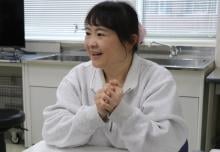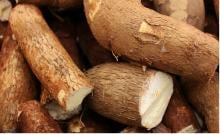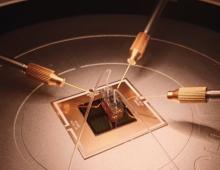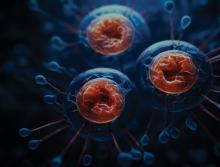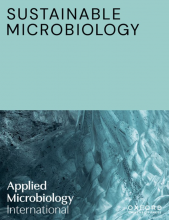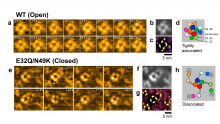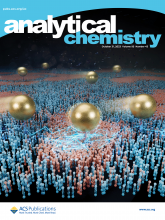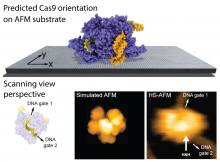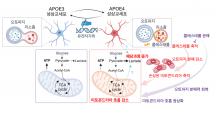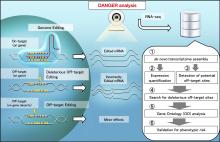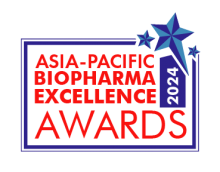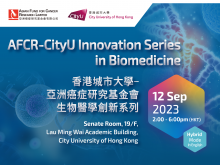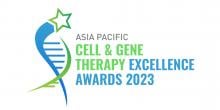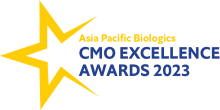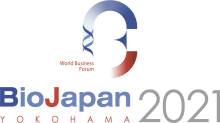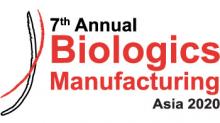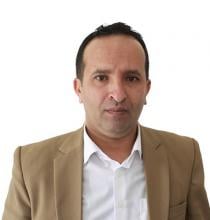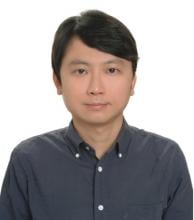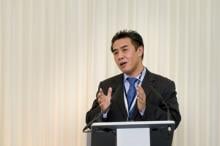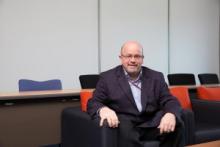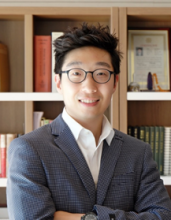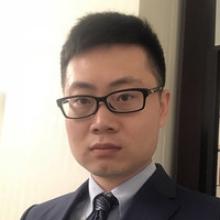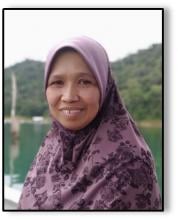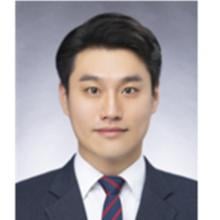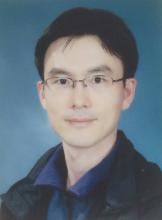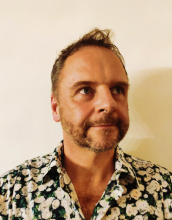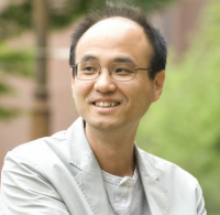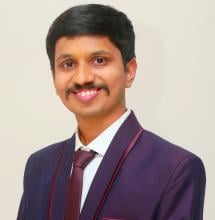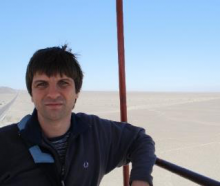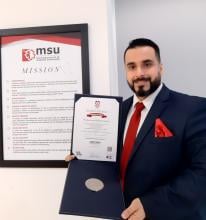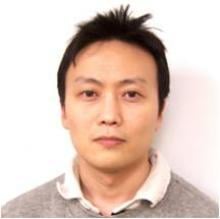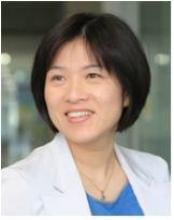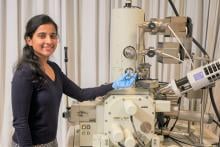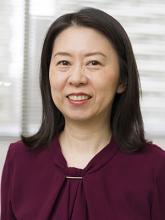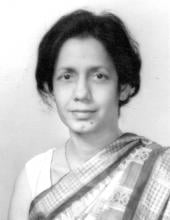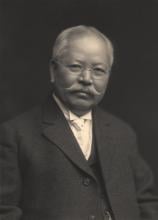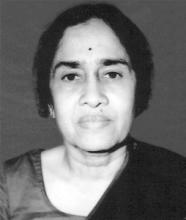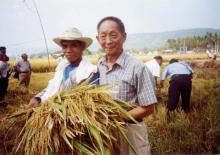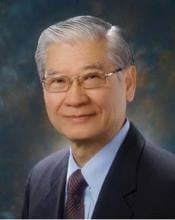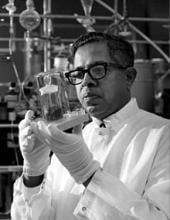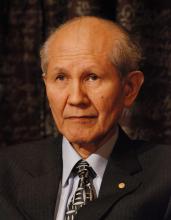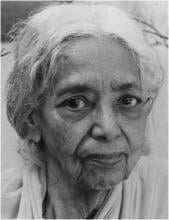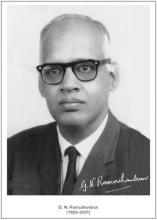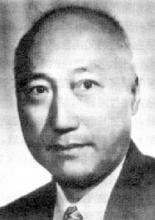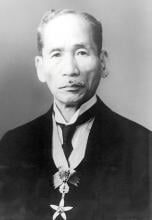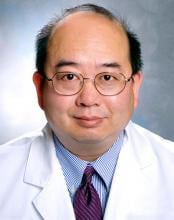Biotech
News
12 Apr 2024
Zika virus vaccine targets brain cancer, 120-year quest to farm lobsters, Arctic nightlife bursts with sound, Eating a robot, Molecular orientation is key & New treatment for ALS and dementia. Read all in the latest Editor's Choice.
11 Apr 2024
Researchers have identified 14 genes that thale cress express more when responding to five specific stressors, as well as eight genes that the plant suppresses.
05 Apr 2024
Asia Research News monitors the latest research news in Asia. Some highlights that caught our attention this week are where music affects our bodies, a battery powered by the oxygen inside our bodies, and the largest bird family tree to date.
25 Mar 2024
A marine biologist is inching closer to conquering science’s over 120-year pursuit to farm lobsters by letting these “dragons of the sea” get real weird.
24 Mar 2024
- DGIST Prof. Hyuk-Jun Kwon's team has developed neuromorphic devices using ferroelectrics and two-dimensional channels.
- Similar to the human brain, they perform both computational and memory functions –– but 10,000 times faster than synapses with minimal energy consumption.
- Their application to next-generation AI semiconductor technology is anticipated.
19 Mar 2024
The 12th Starch Value Chain ASIA conference was held in Vientiane, at Crowne Plaza Hotel, from February 27 to 29, 2024. The conference encompassed four key themes: Asia’s starch markets, industrial and food-grade tapioca starch in Laos with expansion plans, sustainable climate-smart agri-technology for rice and cassava cultivation, and challenges for future growth in Asia's biogas-to-energy sector.
14 Mar 2024
Ancient Mars biomolecules, Gargling away bad bacteria, Molecule glasses magnify life-chemical observations, Cholesterol and cancer link, Quantum electronics leap, Plus our updated Experts for Media: Women list & Asia Research News 2024 is here. Read all in the latest Editor's Choice.
08 Mar 2024
Asia Research News monitors the latest research news in Asia. Some highlights that caught our attention this week are the mechanisms behind regrowing limbs and middle-age weight gain, and a new wound dressing combining mussels and silkworms.
07 Mar 2024
In celebration of International Women's Day, we are putting the spotlight on women experts from various fields who are open to speaking with international media about their research and advocacies.
05 Mar 2024
A novel method for studying genes in testicular cells of living animals could lead to breakthroughs in male contraception and fertility treatments.
01 Mar 2024
Asia Research News monitors the latest research news in Asia. Some highlights that caught our attention this week are tiny tattoos for fish scales, how jellyfish can inspire forensics, and our intrinsic affinity for music.
28 Feb 2024
A new user-friendly tool helps researchers explore how gene activity is influenced by chemical modifications, providing insights into disease and paths to new treatments.
24 Feb 2024
- Dr. Lee Yoon-hee of the DGIST Convergence Research Institute has developed a carbon nanotube transistor for single module research.
- Analysis of aptamer-ligand interactions is expected to yield a novel tool poised to revolutionize nanotechnology and molecular biology research
23 Feb 2024
Asia Research News monitors the latest research news in Asia. Some highlights that caught our attention this week are a biosensor to detect meat freshness, a cute and spooky sea creature, and how even shorter amounts of exercise can lead to benefits.
23 Feb 2024
A new technique allows researchers to map how the cellular “skeleton” adapts to external stress.
22 Feb 2024
Innovative technology for the comprehensive analysis of membrane protein extracellular interactions.
16 Feb 2024
Asia Research News monitors the latest research news in Asia. Some highlights that caught our attention this week are combining rice with animal cells, how microbes make tastier tea, and choosing flavorings and substitutes for salt to reduce the risk of hypertension.
24 Jan 2024
This week sees the launch of the first published content in Sustainable Microbiology, the new open access journal which will apply microbiology to sustainability. The journal is published by Applied Microbiology International.
20 Dec 2023
Researchers at Nano Life Science Institute (WPI-NanoLSI), Kanazawa University report in Nature Communications a high-speed atomic force microscopy study of the structural dynamics of sodium ion channels in cell membranes. The findings provide insights into the mechanism behind the generation of cell-membrane action potentials.
08 Dec 2023
- DGIST Professor Dae-ha Seo's research team has successfully developed optical microscopy analysis technology, based on nanochemistry and machine learning, that can observe the phase separation phenomenon of the cell membrane
- The technology accurately analyzes the nanoenvironment of the cell membrane and is expected to greatly contribute to disease mechanism research and diagnostic technology
08 Dec 2023
Researchers at Kanazawa University report in Frontiers in Molecular Biosciences a computational method to predict the placement of proteins on AFM substrates based on electrostatic interactions.
24 Nov 2023
Asia Research News monitors the latest research news in Asia. Some highlights that caught our attention this week are screentime changing children’s brains, a bacterium that can help reduce toilet time, and a reproductive strategy that is definitely not the butt of the joke.
17 Nov 2023
Asia Research News monitors the latest research news in Asia. Some highlights that caught our attention this week are sea cucumbers that glow in the dark, a needle that softens at body temperature, and the real size of our sun.
16 Nov 2023
The winners of the Applied Microbiology International Horizon Awards were announced at the prestigious Environmental Microbiology lecture 2023, held at BMA House in London on November 16.
03 Nov 2023
- Confirmed the link between cholesterol accumulated in lysosomes and decreased mitochondrial respiration due to the APOE4 genotype and proposed a possible reason that explains a decline in brain function
- Research results published in Cell Reports
02 Nov 2023
Asia Research News monitors the latest research news in Asia. Some highlights that caught our attention this week are mouse embryos grown on the International Space Station, a super-efficient micro engine, and how a virus can help deaf children hear.
02 Nov 2023
• Duke-NUS scientists’ study shows metabolic elasticity is driven by genes.
• It is also dependent on diet, declining with a high-fat diet, while improving with intermittent fasting.
27 Oct 2023
Asia Research News monitors the latest research news in Asia. Some highlights that caught our attention this week are parasites that borrow their hosts genes, how waste feathers can be used in hydrogen fuel cells, and a poor bird that was caught up in a powerful typhoon.
20 Oct 2023
Risk-averse on/off-target assessment for CRISPR editing without reference genome
Events

07 Aug 2024
The MTE 2024: Advanced Healthcare and Life Sciences International Innovation Awards & Expo (AHLS IIAE) is dedicated to recognizing and celebrating groundbreaking innovations in the healthcare industry.
20 Mar 2024
The Asia-Pacific Biopharma Excellence Awards 2024 seeks to give recognition to exceptional Asian bioprocessing, logistics and supply chain management, as well as clinical trials experts, organisations and technologies over the past year. Recognising outstanding achievements of top biopharma leaders in the industry, the Asia-Pacific Biopharma Excellence Awards applauds extraordinary leaders & trend-setters of today and inspires innovators of tomorrow.

16 May 2024
Dive into the future of technology at ITEX 2024, where "Generative AI" takes centre stage, revolutionising how we approach Artificial Intelligence (AI). This groundbreaking theme shifts away from the ordinary, showcasing AI's power to create entirely new content and solutions.
24 Jul 2024
Asia’s largest bioindustry-focused gathering, BIO Asia–Taiwan 2024,
will be held July 24th to 28th, 2024, in Taipei, Taiwan.
14 Sep 2023
Asia Pacific CGT Excellence Awards 2023 seeks to give recognition to exceptional Cell & Gene Therapy Pioneers, Researchers, Innovators & Manufacturers that facilitate fast advancement in new therapies, R&D and manufacturing.
14 Sep 2023
Asia Pacific Biologics CMO Excellence Awards 2023 seeks to give recognition to exceptional CMO & CDMO that facilitate biologics manufacturing excellence at enhanced speed, reduced cost, and superior quality from the biologics contract manufacturing space.

11 Oct 2023
Meet your potential business partners in this Partnering Event. Asia's Largest Partnering will be held in both digitally and physically.
26 Jul 2023
BIO Asia–Taiwan is Asia's largest biotech networking event, and is jointly organized by the global Biotechnology Innovation Organization (BIO) and the Taiwan Bio Industry Organization (Taiwan BIO).
19 Apr 2023
The leading trade fair and think tank for global analysis, laboratory technology and biotechnology sector in Vietnam.
27 Jul 2022
BIO Asia–Taiwan is Asia's largest biotech networking event, and is jointly organized by the global Biotechnology Innovation Organization (BIO) and the Taiwan Bio Industry Organization (Taiwan BIO).
12 Oct 2021
The Asia's Largest Partnering “BioJapan” will be held both digitally and physically. Meet your potential business partners in this Partnering Event!
25 Nov 2020
Asia's Leading Pharma & Bio Tech Show will be held as scheduled from November 25-27, 2020 at Makuhari Messe, Japan. It will be held both on-site and online.
The Khwarizmi International Award (KIA) acknowledges the efforts made by researchers, innovators and inventors from across the globe and to appreciate their high quality research work and contributions to different fields of science and technology.
14 Oct 2020
Asia's Premier Partnering Event for the Global Biotechnology Industry. This year’s exhibition will be held as originally planned at Pacifico Yokohama. BioJapan partnering is available both physically and virtually. Plus some seminars will be available online.
22 Jul 2020
Due to the COVID-19 pandemic affecting international travel, this year's event will be a unique blend of online and live gatherings — BIO Asia–Taiwan 2020 Online + Live, to be held July 22-26 in Taipei, Taiwan.
07 Jul 2020
IMAPAC is bringing to you 3 focus areas: Bio-Manufacturing, Bio-Analytics, and Cell Therapy Bioprocessing as part of Asia's biggest, most focussed annual bioprocessing virtual conference!
Researchers
Professor Madhu Bhaskaran is a Fellow of the Australian Academy of Technology and Engineering. She is a multi-award winning electronics engineer and innovator. She proudly co-leads Women in STEMM Australia.
Ts. Uganeeswary Suparmaniam, AMIChemE (UK) is a multiple award-winning young scientist, sustainability advocate, and climate activist attached to the HICoE-Centre for Biofuel and Biochemical Research, Institute of Self-Sustainable Building, PETRONAS University of Technology, Malaysia.
Nanyang Technological University
Sierin Lim is an Associate Professor of Bioengineering at the School of Chemistry, Chemical Engineering and Biotechnology and the Associate Dean (Global Partnerships) at the Graduate College of Nanyang Technological University, Singapore (NTU). Her research group focuses on the design and engineering of biological entities for applications in health and the environment. She is the co-founder of Women@NTU, Society of Women in Engineering (SWE@SG) and Promotion of Women in Engineering, Research and Science (POWERS) programme.
I am a microbiologist currently working as a lecturer in the Medical Microbiology Department, Faculty of Applied Science, Hajjah University, Yemen. I am interested in research areas related to the prevalence of infectious diseases caused by bacteria, viruses, fungi, and parasites in different areas in Yemen.
Institute for the Advanced Study of Human Biology (ASHBi), Kyoto University
Dr Ashfaq Ahmad Shah 'اشفاک ' born on 6 June 1992, from south Kashmir, Doderkoot ددیرکوٹ Kulgam, Jammu and Kashmir, India is the infection immunity doctoral researcher at the Graphic Era (Deemed to be University), Dehradun, UK, India. Dr Shah is pursuing novel dimensions of infection immunity pertaining to the correlation and impact of phyto-immune components termed phytoalexins and phytoanticipins on the benign immune system of human beings. This parameter of immunology is termed phytoalexin-immunomodulation scrutiny. His area of interest lies in Preclinical and clinical studies, i.e. vaccine adjuvant development, development of anti-inflammatory and antimicrobial compounds, evaluation of antibiotic resistance, study of Immuno-modulatory activities, disease model studies, protease isolation against specific protein antigens, and the discipline of Kalology including tyrosinase inhibition, PPO inhibition, skin whitening agents, kerato-peeling etc. Dr Ashfaq is a Doctoral Researcher, Reviewer and Editorial member of several journals and books. He is having several publications in journals of national and international repute. So far he has published more than thirty scopus infection/immunology/pharmacology scientific papers, including Fifteen international book chapters and two international books. Mr Shah received the Young scientist award in August 2023 for his groundbreaking academic performance in the field of infection immunity. Mr Shah has also been an editor of Wikipedia pages in medical science since 2015 with more than 1000 edits in medical topics available to medical literature worldwide.
Dr. Zong-Hong Lin is a Professor at the Institute of Biomedical Engineering, National Tsing Hua University and at the Department of Biomedical Engineering, National Taiwan University.
Kyoto University
Dr. So Iwata is a Professor at the Graduate School of Medicine Kyoto University and the Group Director of the SACLA Science Research Group, RIKEN SPring-8 Center. He has investigated how specialized membrane channels remove antimicrobial drugs from inside bacterial cells.
Ulsan National Institute of Science and Technology (UNIST)
Dr. Mitchell is a professor at the Department of Biological Sciences, Ulsan National Institute of Science and Technology (UNIST). His primary research interest is the study of bacterial strains that attack and prey on other bacteria, including antimicrobial-resistant pathogens.
Duke-NUS Medical School
Dr. Sonia Chotani is a computational biologist working in the area of small open reading frames and RNA translation in human diseases.
Daegu Gyeongbuk Institute of Science and Technology (DGIST)
Minseok S. Kim is an Assistant Professor of New Biology at Daegu Gyeongbuk Institute of Science & Technology (DGIST)
City University of Hong Kong (CityU)
Dr. Yu Xinge is currently an Associate Professor at the Department of Biomedical Engineering at City University of Hong Kong.
Universiti Teknologi MARA (UiTM)
Department of Microbiology / Biomolecular Sciences
Universiti Teknologi MARA
Malaysia
Daegu Gyeongbuk Institute of Science and Technology (DGIST)
Dr. Seong-Kyoon Choi is a senior researcher at the Division of Biotechnology of Daegu Gyeongbuk Institute of Science and Technology (DGIST)
Daegu Gyeongbuk Institute of Science and Technology (DGIST)
Dr. Wookbong Kwon is currently a postdoctoral researcher at the Division of Biotechnology of Daegu Gyeongbuk Institute of Science and Technology (DGIST)
Daegu Gyeongbuk Institute of Science and Technology (DGIST)
Myungin Baek is currently an Assistant Professor at Daegu Gyeongbuk Institute of Science and Technology (DGIST).
City University of Hong Kong (CityU)
Prof. Jan is interested in how sensory processing interpret auditory inputs to the brain are transformed to underpin subjective perceptual qualities of sound such as pitch, timbre and sound source location, and how the brain learns to adapt to the statistical structure of the sounds in our environment to form efficient neural representations of sound and to support auditory scene analysis.
Prasanna Lakmal is a lecturer at the Department for Commerce & Financial Management of the University of Kelaniya, Sri Lanka.
Ulsan National Institute of Science and Technology (UNIST)
Prof. Cho Jae-Weon is a professor of environmental engineering at the National Institute of Science and Technology (UNIST) in Ulsan, South Korea and has devised a way to convert human waste into power.
Assistant Professor of Environmental Science
Krishna Institute of Allied Sciences
Krishna Institute of Medical Sciences
Deemed To Be University, Karad
Monash University
Dr Yap is currently a senior lecturer and course coordinator for the Bachelor of Medical Bioscience at Monash University Malaysia. She is dedicated to toxin pharmacology and toxicology research. She has strong background in biomolecular modelling, proteomics, immunological and molecular pharmacology of bioactive toxins. She leads the Toxin Pharmacology Research Group. Her research group now focuses on molecular mechanisms of cytotoxin with the ultimate goal of developing next-generation biotherapeutics. Her research works have been featured in prominent media outlets, including the International Snakebite Awareness Day campaign. Besides active in research, she is also an education innovator who adopts various active learning strategies with technology. She teaches undergraduate units with an emphasis on student-cantered learning using the andragogy approach. Dr Michelle enjoys promoting STEM education to the public. She has organized and hosted several workshops and forums to advance the disciplines in medical sciences through research and education.
Frederico Castelo Ferreira's current research interest balances between fundamental and applied research, with potential translation into the market of sustainable products and processes.
Dr. Mohammed N. Abdulrazaq is currently an Assoc. Prof. at Department of Engineering & Technology, Management & Science University (MSU), Malaysia.
Universiti Malaysia Sabah
Dr. Connie Cassy Ompok is an early childhood education expert and a Senior Lecturer at the Faculty of Psychology and Education, Universiti Malaysia Sabah. She Started her career in Early Childhood Education as a preschool teacher (2004-2007), a lecturer in early childhood education at the Malaysian Institute of Teacher Education (2008-2016) before serving as a Senior Lecturer in Early Childhood Education at UMS (2016 until now).
Currently a research assistant in the laboratory of green energy in Zhejiang University of Technology.
Ulsan National Institute of Science and Technology (UNIST)
Associate Professor Hajin Kim is a biomedical engineer at the Single Molecule Biophysics Laboratory, Ulsan National Institute of Science and Technology, South Korea.
Ulsan National Institute of Science and Technology (UNIST)
Yoon-Kyoung Cho is currently a group leader in the Center for Soft and Living Matter at the Institute for Basic Science (IBS) and a full professor in the Department of Biomedical Engineering at Ulsan National Institute of Science and Technology (UNIST) in the Republic of Korea.
Tokyo University of Science
Kyohei Okubo is an assistant professor at the Faculty of Industrial Science and Technology, Department of Materials Science and Technology, Tokyo University of Science.
Nanyang Technological University
Dr. Sravya Tekumalla is currently a Principal Investigator in Nanyang Technological University, Singapore, where she works as a Presidential Postdoctoral Fellow. In addition, she also leads a small team of staff and students working in the domain of metal additive manufacturing (commonly known as 3D printing).
Tohoku University
I am a leading expert in the reconstruction of an artificial cell membrane as a novel system for screening side effects of drugs on the heart. This system can assess the potential risks of drugs that unintentionally interfere with the function of membrane proteins in the heart muscle.
Giants in history
Pakistani botanist Azra Quraishi (22 September 1945 – 22 November 2002) is recognised for developing virus-free seed potatoes that increased potato production in Pakistan by an estimated five per cent.
Indian botanist Shipra Guha-Mukherjee (13 July 1938 – 15 September 2007) made a breakthrough discovery that enabled the genetic study of plants and, by extension, the development of improved varieties of rice, wheat, potatoes, and other crops.
Japanese chemist Takamine Jokichi (3 November 1854 – 22 July 1922) founded the Tokyo Artificial Fertilizer Company, where he isolated a starch-digesting enzyme (named takadiastase) from the fungus Aspergillus oryzae.
Filipina chemist María Orosa (29 November 1892–13 February 1945) fought malnutrition and food insecurity in the Philippines by devising over 700 culinary creations including Soyalac, a nutrient rich drink made from soybeans, and Darak, rice cookies packed with Vitamin B1, which could prevent beriberi disease caused by Vitamin B1 deficiency. She was also a partisan of the guerrilla movement resisting Japanese occupation during World War II, and died after being struck by shrapnel while working in her laboratory during the Battle of Manila.
Chinese biochemist Cao Tianqin (5 December 1920 – 8 January 1995) discovered the myosin light chain, a subunit of myosin, a protein crucial for muscle contraction.
In 1939, biochemist Kamala Sohonie (18 June 1911 – 28 June 1998) became the first woman to be accepted into the Indian Institute of Science (IISc).
Chinese agronomist Yuan Longping (7 September 1930 – 22 May 2021) developed the first varieties of the high-yield, hybrid rice that brought food security to multiple countries including China, which had been ravaged by food shortages as recently as the mid-20th century.
David T. Wong (born 1936) is a Hong Kong-born American neuroscientist who is best known for discovering the antidepressant drug fluoxetine, better known as Prozac.
Cyril Andrew Ponnamperuma (16 October 1923 – 20 December 1994) was a Sri Lankan chemist who was interested in the origins of life on Earth. His research in chemical evolution showed how inanimate molecules may have given rise to the building blocks of life – a process known as abiogenesis.
Osamu Shimomura (27 August 1928 – 19 October 2018) was a Japanese organic chemist and marine biologist who dedicated his career to understanding how organisms emitted light.
Janaki Ammal Edavalath Kakkat (4 November 1897 – 7 February 1984) was an Indian botanist who studied plant chromosomes and genetics.
Gopalasamudram Narayanan Ramachandran (8 October 1922 – 7 April 2001) is best known for developing the Ramachandran plot to understand the structure of short chains of amino acids, known as peptides.
Hsien Wu (24 November 1893 – 8 August 1959) is widely regarded as the founder of biochemistry and nutrition science in China. He was the first to propose that protein denaturation was caused by the unfolding of the protein, instead of chemical alteration.
Umetaro Suzuki (7 April 1874 – 20 September 1943) was a Japanese scientist best remembered for his research on beriberi, a disease caused by vitamin B1 deficiency, characterized by limb stiffness, paralysis and pain.
Maqsudul Alam (14 December 1954 – 20 December 2014) was a biologist from Bangladesh who is renowned for his research on genome sequencing
Barry Paw (29 August 1962 – 28 December 2017) was a biologist and oncologist who discovered several novel genes and their functions in red blood cells.
Gloria Lim (1930-2022) was a mycologist from Singapore who studied tropical fungi. One of the first students to attend University of Malaya when it was founded in 1949, she went on to become the first female Dean of the Faculty of Science at the University of Singapore.






